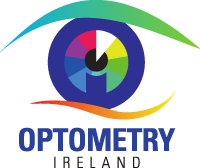Eyecare remains one of health’s largest waiting lists
Optometrists have today called for greater role in public eyecare in line with their training and expertise – as this would dramatically cut large hospital and clinic waiting times.
Optometry Ireland is today (Monday, March 24) writing to all TDs outlining steps which would reduce waiting times for outpatient eyecare, and deliver value for the taxpayer.
National Treatment Purchase Fund (NTPF) waiting list figures to the end of 2024 show that there were 33,704 adult outpatients awaiting eye-care appointments – the fourth largest of any medical speciality.
Optometry Ireland represents over 700 Optometrists working in 350 locations nationwide and has set out three community-based steps that would help adults and children access needed services quicker.
These include: Viable fees for public schemes, an over 8s national eyecare programme and an increased Scope of Practice.
Viable fees for the Medical Card and PRSI benefit Schemes
Optometry Ireland CEO Seán McCrave said that Optometrists deliver 98% of primary eyecare through Medical Card and PRSI benefit Schemes, but the current fee level make these schemes non-viable.
“The HSE Medical Card fee paid to Optometrists is €22.51 and the PRSI fee is €30, but a break-even cost of an eye examination is €96. There has been no increase in the fee level for these community-based schemes for over 20 years.
“Some Optometrists have been withdrawing, or not entering them. There has been ongoing engagement with the Departments of Health and Social Protection and the HSE. However, no outcome has been reached.
“Optometrists are calling on the Government – particularly Ministers Jennifer Carroll MacNeill and Dara Calleary – to make greater use of the professions’ network and expertise in line with eyecare services across Europe.”
An over 8s national eyecare programme
Mr McCrave continued by saying that eyecare for children up to 12 years is led by HSE Ophthalmology Clinics. However, there is no clinical benefit for children being retained in HSE clinics over the age of 8. He said that discharging the care of 8 to 12-year-olds to community Optometry practices would dramatically reduce Clinic waiting times.
“A national programme for over 8s public eyecare was costed, a plan approved and funding ring fenced 12 years ago, however this was never implemented by the HSE. An updated ‘over 8s eyecare plan’ was recently resubmitted and again agreed to by the Department of Health. However, funding approval continues to be awaited,” he said.
Increased Scope of Practice for Optometrists
Mr McCrave concluded citing a third action which would improve capacity: “In 2023, the HSE Chief Clinical Officer Colm Henry wrote to the Department of Health calling for increased Scope of Practice for Optometrists – in line with their level of training. Legislative change is required to facilitate this. However, there remains no progress. Increasing Optometrists’ Scope of Practice would make a significant impact on reducing capacity pressure on GPs and hospital waiting lists.”
Further Information
Ronan Cavanagh, Cavanagh Communications: (086) 317 9731.
Optometry Ireland (OI) is the professional representative body for the vast majority of practising Optometrists in Ireland, including 700 members in 350 locations nationwide. OI works to ensure the highest possible standards in provision of clinical and dispensing eye-care services to the public.
